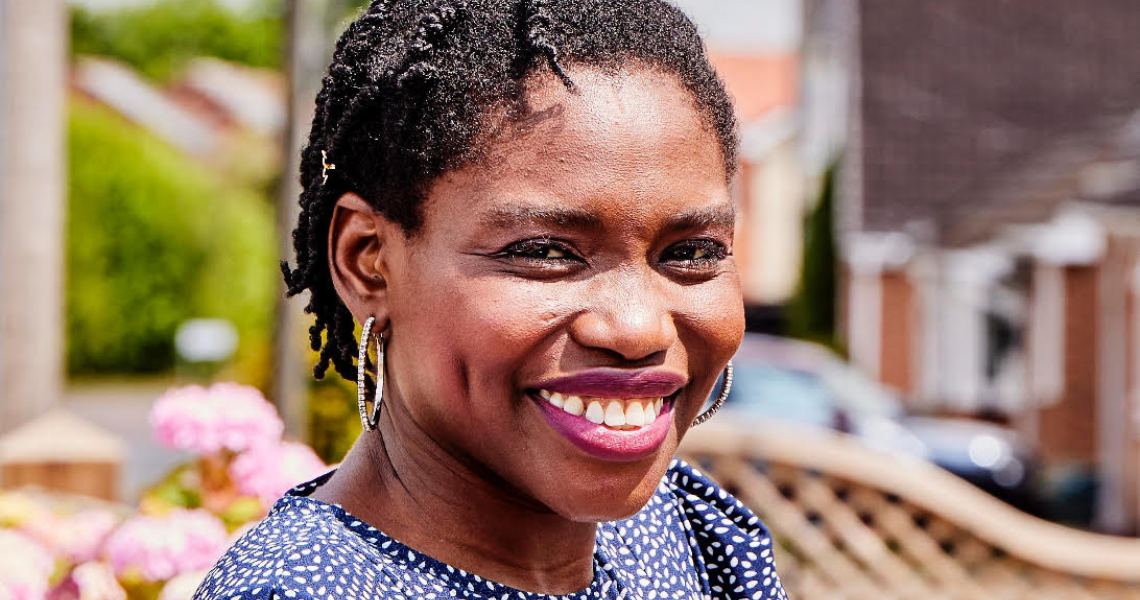.png)
This story is adapted from an article originally written on 27 July 2023
Dr Ore-Ofe Ajeigbe, 34, who lives in Kent, took part in the TAPS2 feasibility trial at Guy’s and St Thomas’ from July to October 2022. The study is looking at whether a new treatment improves women’s and babies’ health in pregnant women with sickle cell disease.
Sickle cell disease is a group of inherited genetic conditions that affect red blood cells. People with sickle cell disease produce unusually shaped red blood cells that can cause problems because they do not live as long as healthy blood cells and can block blood vessels.
The symptoms vary from person to person, but can include severe pain and anaemia, which causes tiredness and shortness of breath. It is a serious and lifelong condition which can cause regular hospitalisation, although treatment can help manage many symptoms.
“When I am in a sickle cell crisis, the pain can be so bad that I don’t know whether or not I will die. You are desperate for the pain to stop.”
- Ore-Ofe
The study tested a treatment called Serial Prophylactic Exchange Blood Transfusion (SPEBT). In SPEBT, sickle blood is mechanically removed and simultaneously replaced with donor red blood cells.
“I was terrified about managing my first pregnancy with sickle cell disease, but this trial took away those fears,” Ore-Ofe said.
“The treatment was genuinely life-changing because it took away my pain. I could enjoy my life, my pregnancy and plan for the future. I cannot thank the Guy’s and St Thomas’ team enough. They looked after me, and the consultant leading this trial went above and beyond for me.”
Sickle cell disease is common in people from a black African or Caribbean background. In England, the condition affects around 15,000 people.
Ore-Ofe had regular blood tests before having her blood transfusions as part of her involvement in the TAPS2 feasibility trial. The mother’s final blood transfusion was in October 2022. She gave birth to her daughter in November 2022.
“I would be very happy to take part in research again. Science and medicine have come a long way in the last 50 years. One of the reasons it has come such a long way is because of people taking part in research to help clinicians make things better for future generations. We all have a part to play, and I urge others to volunteer in sickle cell disease research to help their children, grandchildren and future generations.”
Sign up to Be Part of Research to be contacted about a range of health and care research. Or check out our full list of studies to see if one is right for you.
And if taking part in a study doesn’t feel right at the moment there are other ways to get involved in research.




